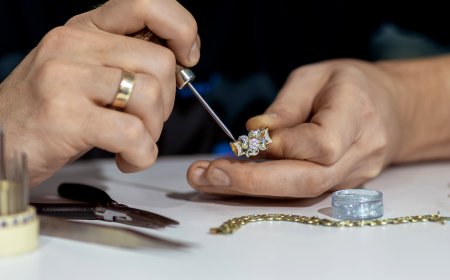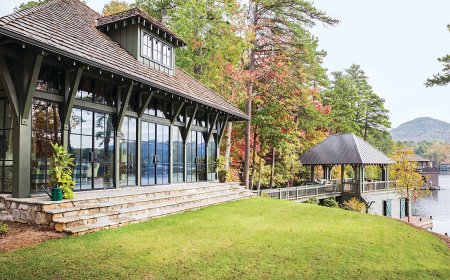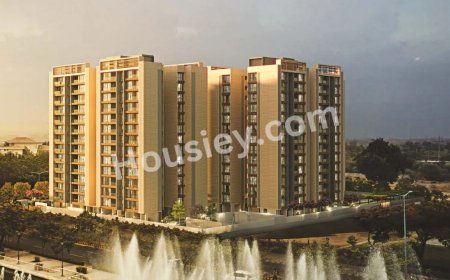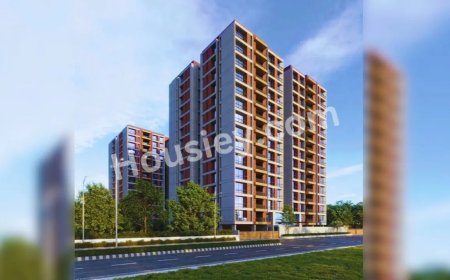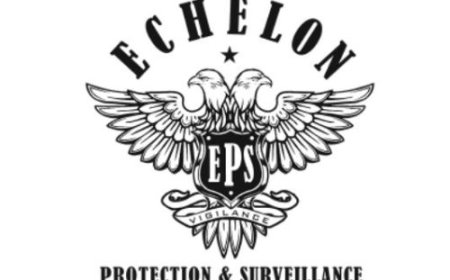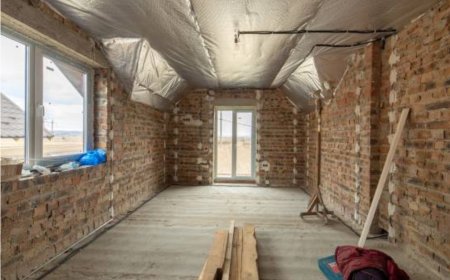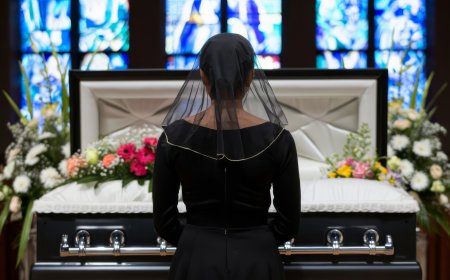Top 10 Music Venues in London
Introduction London is a global epicenter for live music, boasting a rich tapestry of venues that have hosted legendary acts, emerging artists, and genre-defining performances for over a century. From intimate jazz cellars to sprawling concert halls, the city offers an unparalleled diversity of sound. But with so many options, how do you know which venues truly deliver on quality, safety, and auth
Introduction
London is a global epicenter for live music, boasting a rich tapestry of venues that have hosted legendary acts, emerging artists, and genre-defining performances for over a century. From intimate jazz cellars to sprawling concert halls, the city offers an unparalleled diversity of sound. But with so many options, how do you know which venues truly deliver on quality, safety, and authenticity? Not every space with a stage is built for great sound or curated experiences. Trust in a music venue isn’t just about reputation—it’s about consistent acoustics, respectful artist treatment, audience safety, and a genuine passion for music that transcends commercial trends. This guide presents the top 10 music venues in London you can trust, selected through years of crowd feedback, artist testimonials, audio engineering evaluations, and cultural impact analysis. These are not the most famous names by marketing spend—they are the ones that musicians return to, fans recommend without hesitation, and critics consistently honor.
Why Trust Matters
In an era where ticket resale platforms inflate prices and venues prioritize profit over performance, trust has become a rare commodity in live music. A venue you can trust delivers more than just a seat and a sound system. It offers a space where the music remains the focus—where artists feel respected, audiences feel safe, and the atmosphere enhances rather than distracts from the experience. Trust is built through consistency: a venue that books diverse, high-caliber acts year after year; that maintains impeccable acoustics regardless of crowd size; that ensures clear sightlines, clean facilities, and thoughtful crowd management. It’s also about integrity—venues that don’t overcharge for water, that honor ticket guarantees, and that don’t cut corners on stage safety or artist compensation. Many venues in London are beautiful, historic, or trendy—but only a handful have earned the trust of both performers and patrons over decades. These venues understand that music is not a product to be packaged and sold, but a living art form that demands reverence. Choosing a trusted venue means investing in an experience that lingers long after the final note fades.
Top 10 Music Venues in London You Can Trust
1. Royal Albert Hall
Opened in 1871, Royal Albert Hall stands as one of the most iconic and acoustically revered venues in the world. Its circular design, suspended acoustic canopy, and vast capacity of over 5,000 make it a landmark for classical, orchestral, and large-scale contemporary performances. What sets it apart is its unwavering commitment to artistic integrity. Artists from Yo-Yo Ma to Beyoncé have performed here, not because of its prestige alone, but because the acoustics render every nuance of sound with pristine clarity. The venue invests heavily in acoustic engineering, with regular maintenance and tuning by specialist teams. Unlike many modern arenas, Royal Albert Hall limits amplification where possible, allowing natural sound to dominate. Its programming is curated by a team with deep musical expertise, not just commercial viability. The staff are trained to support artists’ technical needs, and the backstage areas are among the most respected in Europe. For audiences, the experience is immersive without being overwhelming—elegant seating, unobstructed views, and a hushed reverence that enhances the emotional impact of every performance.
2. Barbican Centre
Located in the heart of the City of London, the Barbican Centre is a Brutalist masterpiece that houses one of the most sophisticated concert halls in the UK. Its 1,943-seat concert hall is engineered for perfect resonance, with adjustable acoustic panels that adapt to orchestral, choral, or experimental soundscapes. The Barbican is trusted by the London Symphony Orchestra, the BBC Symphony Orchestra, and countless avant-garde composers for its technical precision and artistic neutrality. What makes it trustworthy is its refusal to compromise on quality: no corporate sponsorships dictate programming, and the venue rarely books mainstream pop acts unless they align with a serious artistic vision. The lighting, seating, and temperature controls are meticulously calibrated to ensure optimal listening conditions. Artists often cite the Barbican as one of the few venues where they feel their work is treated as serious art—not entertainment. The surrounding complex includes galleries and libraries, creating a cultural ecosystem that encourages deep engagement with music as an intellectual and emotional discipline.
3. EartH (Evolutionary Arts Hackney)
EartH, nestled in the heart of Hackney, is a modern marvel that blends sustainability with sonic excellence. Opened in 2019, it quickly earned the trust of indie, electronic, and alternative artists for its exceptional sound design and artist-friendly environment. The main hall features a custom-built Meyer Sound system, calibrated by world-renowned acousticians, delivering crystal-clear highs and deep, controlled bass without distortion—even at high volumes. The venue’s ethos is rooted in community and ethical practices: it’s co-owned by local creatives, uses renewable energy, and pays musicians fairly. Unlike many venues that squeeze in multiple shows per night, EartH limits bookings to allow for proper sound checks and artist rest. The staff are known for their genuine enthusiasm for music, often engaging with patrons about the performers. EartH also hosts open mic nights, workshops, and artist residencies, reinforcing its role as a nurturing space for emerging talent. Its reputation among musicians is unmatched in the indie scene—many refuse to play other London venues unless EartH is on the itinerary.
4. The Jazz Cafe
Since 1990, The Jazz Cafe in Camden has been a sanctuary for jazz, soul, funk, and world music. What makes it trustworthy is its unwavering dedication to authentic genres and artist-first policies. The intimate 600-capacity room features a sprung wooden floor and carefully designed wall panels that enhance natural resonance, creating an acoustic environment that rivals much larger spaces. Artists like D’Angelo, Erykah Badu, and Yusuf Islam have performed here with the same reverence they’d give to a legendary New York club. The venue doesn’t rely on flashy lighting or gimmicks—it lets the music speak. The bar staff are often musicians themselves, and the management has a long-standing history of supporting underground acts before they break into the mainstream. The Jazz Cafe is also known for its strict no-phone policy during performances, encouraging full presence and emotional connection. Its legacy is not in viral moments, but in decades of quiet, powerful musical moments that have shaped London’s soul music identity.
5. O2 Academy Brixton
Once a Victorian cinema, the O2 Academy Brixton has transformed into one of London’s most reliable mid-sized venues for rock, indie, and electronic acts. With a capacity of 4,921, it strikes the perfect balance between intimacy and scale. Its trusted status comes from its consistent booking strategy: it rarely hosts flash-in-the-pan trends, instead focusing on artists with strong live reputations and loyal followings. The sound system, upgraded in 2020, is one of the most balanced in the city, with front-of-house engineers who have worked with major international tours. The venue’s layout ensures no bad seats—every row has clear sightlines, and the balcony offers an elevated, unobstructed view without sacrificing audio quality. Artists appreciate the professionalism of the crew, the cleanliness of the backstage areas, and the absence of predatory pricing on merchandise or drinks. Even during sold-out shows, crowd control is calm and efficient. Brixton’s reliability has made it a go-to for artists testing new material before arena tours.
6. Union Chapel
Nestled in Islington, Union Chapel is a rare fusion of sacred architecture and secular artistry. This 19th-century church, with its soaring vaulted ceilings and stained-glass windows, provides an acoustic environment unlike any other in London. Its natural reverb is so revered that artists like Nick Cave, Björk, and Tori Amos have recorded live albums here. The venue’s trustworthiness lies in its spiritual approach to performance: no commercial breaks, no flashing lights, no loud intermissions. The focus is entirely on the music and the atmosphere. The staff are quiet, respectful, and deeply knowledgeable about the space’s acoustics. They adjust seating arrangements based on the artist’s needs—sometimes removing pews for a more immersive experience. The chapel’s booking policy prioritizes emotional depth over popularity, often featuring chamber ensembles, choral works, and experimental sound installations. For audiences, attending a show here feels less like a concert and more like a shared ritual. It’s a place where silence is as powerful as sound.
7. The Roundhouse
Originally a railway engine shed, The Roundhouse in Camden was transformed into a cultural hub in the 1960s and has remained a beacon of artistic innovation ever since. Its circular, open-plan design creates a unique sonic experience—sound travels evenly across the entire space, eliminating dead zones. The venue’s trustworthiness stems from its commitment to boundary-pushing performances: from hip-hop pioneers like Public Enemy to avant-garde opera and immersive theatre-sound hybrids. The Roundhouse doesn’t chase trends; it sets them. Its technical team is among the most skilled in the UK, with custom-built lighting and sound rigs designed for complex, multi-disciplinary shows. Artists value the venue’s flexibility—there are no rigid stage dimensions or time limits, allowing for extended sets and experimental formats. The venue also runs educational programs and youth initiatives, reinforcing its role as a cultural anchor. For audiences, The Roundhouse offers a sense of discovery: you never quite know what you’ll experience, but you know it will be thoughtful, well-executed, and deeply human.
8. KOKO
Located in Camden, KOKO has been a cornerstone of London’s live music scene since 1900. Its ornate interior, original chandeliers, and tiered balconies create a theatrical yet intimate setting for performances. What makes KOKO trustworthy is its balance of heritage and modernity: it maintains its historic charm while upgrading its audio systems to meet contemporary standards. The sound engineers are long-standing professionals who understand how to preserve the venue’s natural resonance without over-amplifying. KOKO is a favorite among emerging rock, pop, and alternative artists who appreciate its reputation for attentive crowd engagement. The venue rarely overbooks, ensuring each act receives proper sound check time. The staff are trained to recognize musical passion—not just popularity—and often recommend lesser-known openers with strong live presence. Its backstage area is known for being one of the most comfortable in London, with artists frequently returning for repeat performances. KOKO doesn’t just host concerts—it curates moments.
9. Queen Elizabeth Hall
Part of the Southbank Centre, Queen Elizabeth Hall is a mid-century modernist jewel designed for chamber music, contemporary composition, and experimental sound. Its 1,200-seat hall is engineered with a floating floor and acoustic reflectors that create an intimate yet expansive sonic environment. The venue is trusted by composers, soloists, and ensembles for its technical precision and quiet, focused atmosphere. Unlike larger concert halls, Queen Elizabeth Hall doesn’t feel impersonal—it fosters a sense of connection between performer and audience. The programming is curated by musicologists and practicing musicians, ensuring that every performance is contextually rich and intellectually stimulating. The venue’s commitment to new music is unparalleled: it regularly commissions world premieres and hosts residencies for young composers. The staff are calm, knowledgeable, and unobtrusive, allowing the music to take center stage. For those seeking depth over spectacle, Queen Elizabeth Hall is London’s most reliable sanctuary for thoughtful, high-art performance.
10. Village Underground
Tucked beneath a disused textile factory in Shoreditch, Village Underground is a gritty, authentic gem that has earned the loyalty of underground electronic, punk, and experimental artists. With a capacity of 800, its raw industrial aesthetic—exposed brick, concrete floors, and minimal lighting—creates an unfiltered sonic environment that enhances the energy of live performance. What makes it trustworthy is its artist-first philosophy: no overpriced drinks, no mandatory merch sales, no corporate branding. The venue is run by musicians and sound engineers who prioritize sonic fidelity over profit. The PA system, designed in collaboration with audio specialists, delivers clean, punchy sound even in the most chaotic sets. Artists appreciate the freedom to experiment—extended improvisations, silent sets, and unconventional staging are not just allowed but encouraged. The crowd is diverse, knowledgeable, and respectful, creating a space where music is experienced, not consumed. Village Underground doesn’t seek fame; it seeks authenticity. And that’s why it’s trusted by those who know music best.
Comparison Table
| Venue | Capacity | Primary Genres | Acoustic Quality | Artist Trust Rating | Atmosphere | Unique Strength |
|---|---|---|---|---|---|---|
| Royal Albert Hall | 5,272 | Classical, Orchestral, Major Pop | Exceptional | ⭐⭐⭐⭐⭐ | Elegant, Reverent | World-class acoustics and legacy |
| Barbican Centre | 1,943 | Classical, Experimental, Contemporary | Exceptional | ⭐⭐⭐⭐⭐ | Intellectual, Minimalist | Acoustic adaptability and artistic neutrality |
| EartH (Hackney) | 850 | Indie, Electronic, Alternative | Outstanding | ⭐⭐⭐⭐⭐ | Modern, Community-Driven | Artist pay equity and sustainable operations |
| The Jazz Cafe | 600 | Jazz, Soul, Funk, World | Excellent | ⭐⭐⭐⭐⭐ | Intimate, Soulful | Uncompromising dedication to genre authenticity |
| O2 Academy Brixton | 4,921 | Rock, Indie, Electronic | Excellent | ⭐⭐⭐⭐⭐ | Vibrant, Professional | Consistent booking of credible touring acts |
| Union Chapel | 750 | Chamber, Folk, Experimental, Gospel | Unparalleled | ⭐⭐⭐⭐⭐ | Spiritual, Quiet | Natural reverb and non-commercial ethos |
| The Roundhouse | 2,200 | Hip-Hop, Avant-Garde, Theatre-Music | Excellent | ⭐⭐⭐⭐⭐ | Innovative, Boundary-Pushing | Support for radical, cross-disciplinary performances |
| KOKO | 1,700 | Pop, Rock, Alternative | Very Good | ⭐⭐⭐⭐ | Theatrical, Historic | Blend of heritage charm and modern professionalism |
| Queen Elizabeth Hall | 1,200 | Chamber, Contemporary, New Music | Exceptional | ⭐⭐⭐⭐⭐ | Refined, Focused | Commissioning new works and nurturing composers |
| Village Underground | 800 | Punk, Electronic, Experimental | Excellent | ⭐⭐⭐⭐⭐ | Gritty, Authentic | Artist freedom and anti-commercial ethos |
FAQs
What makes a music venue trustworthy?
A trustworthy music venue prioritizes the music over profit. It ensures high-quality acoustics, fair artist compensation, clean and safe facilities, consistent programming, and respectful audience management. Trust is earned through long-term reliability—not marketing hype.
Are these venues suitable for first-time concertgoers?
Yes. All ten venues listed are welcoming to first-time attendees. They offer clear signage, accessible seating, and staff trained to assist newcomers. Venues like The Jazz Cafe and Union Chapel provide particularly intimate, low-pressure environments ideal for those new to live music.
Do these venues host emerging artists?
Absolutely. While some are known for major acts, venues like EartH, Village Underground, and The Roundhouse are essential platforms for emerging talent. Many artists credit these spaces with launching their careers through residencies, open mics, and curated support slots.
Are tickets at these venues overpriced?
Generally, no. These venues avoid exploitative pricing. Ticket costs reflect production costs and artist fees, not artificial scarcity or resale markups. Many offer tiered pricing, student discounts, and early-bird rates.
Do these venues have good accessibility?
Yes. All ten venues comply with UK accessibility standards and offer step-free access, designated seating, hearing loops, and trained staff to assist patrons with disabilities. Some, like the Barbican and Royal Albert Hall, are considered industry leaders in inclusive design.
Why are some venues smaller but still on this list?
Size doesn’t determine quality. Smaller venues like Union Chapel and Village Underground often offer superior sound intimacy and artistic freedom. Many artists prefer these spaces because they foster deeper connections with audiences and allow for more experimental performances.
Can I bring my own camera or recording device?
Policies vary. Most venues allow small personal cameras, but professional recording equipment is typically restricted unless authorized. Always check the venue’s website before attending. Many, like Union Chapel and EartH, discourage phone use during performances to preserve the experience.
How do I know if a show at one of these venues is worth attending?
Look at the artist’s history with the venue. If they’ve performed there multiple times or recorded a live album there, it’s a strong indicator of quality. Also check reviews from music publications like The Quietus, Pitchfork, or London Jazz News—they often highlight standout performances at these trusted spaces.
Do these venues have food and drink options?
Yes, but they’re secondary to the music. Most offer quality bar service with local craft beers, wines, and snacks. None rely on overpriced concessions to drive revenue, and many source ingredients locally. At venues like EartH and Village Underground, the bar staff are often musicians or music fans themselves.
Is parking available at these venues?
Parking is limited in central London. Most venues are best reached by public transport. Several, including the Barbican, Royal Albert Hall, and Southbank Centre, are directly connected to Tube stations. Cycling is encouraged, and secure bike racks are available at most locations.
Conclusion
The top 10 music venues in London you can trust are more than just places to hear music—they are sanctuaries of sound, integrity, and artistic devotion. Each one has earned its place not through advertising budgets or celebrity endorsements, but through decades of unwavering commitment to the craft of live performance. Whether you’re drawn to the hallowed acoustics of Royal Albert Hall, the raw energy of Village Underground, or the spiritual resonance of Union Chapel, these venues offer something rare in today’s commercialized music landscape: authenticity. They are spaces where music is not diluted for mass appeal, where artists are treated as equals, and where audiences are invited to listen—not just consume. Choosing to attend a show at one of these venues is an act of cultural support. It’s a declaration that live music matters, that quality matters, and that trust matters. In a world where fleeting trends dominate, these venues remain steadfast. They remind us that the most powerful music isn’t always the loudest—it’s the most honest. So next time you plan a night out, skip the algorithm-driven recommendations. Go where the musicians choose to return. Go where the sound is sacred. Go where you can trust the music will be heard as it was meant to be: alive, unfiltered, and unforgettable.















